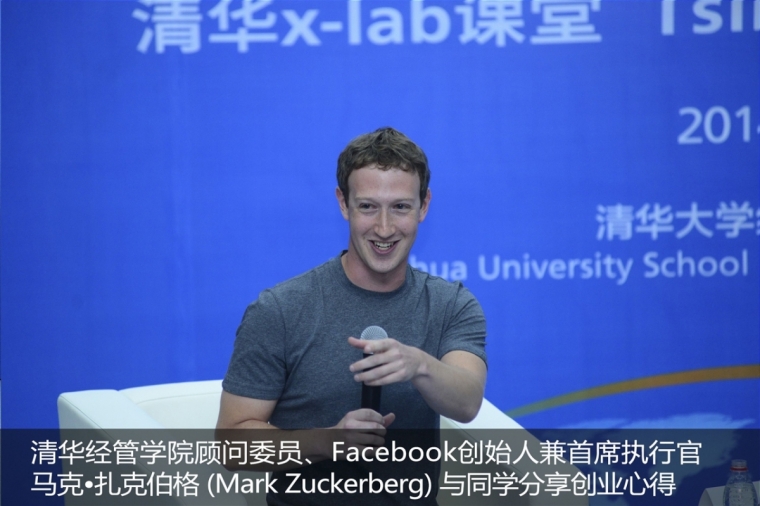The Facebook Phenomenon: Revolutionizing Journalism

With about 1.3 billion users worldwide – or a fifth of the world's population – Facebook is revolutionizing journalism in a way that has never been anticipated before.
And this is being done by just one man -- 26-year-old Facebook engineer Greg Marra -- together with his team of 16 technicians, according to a New York Times report.
Marra says he and his team design the code that powers Facebook's News Feed — the stream of updates, photographs, videos and stories that users see.
He says about once a week, they adjust the complex computer code that decides what to show a user when he or she logs on to Facebook. Marra says the code is based on "thousands and thousands" of metrics, including what device a user is on, how many comments or likes a story a user has received and how long readers spend on an article.
He says their objective is to identify what users most enjoy, noting that their findings vary around the world. For example, in India, people are mostly interested in ABCDs – astrology, Bollywood, cricket and divinity, he says.
If Facebook's algorithm based on artificial intelligence favors a publisher, the rewards, in terms of visitor traffic, can be huge financially.
Figures from the analytics company SimpleReach show that Facebook's News Feed drives up to 20 percent of traffic to news sites. On mobile devices, the fastest-growing source of information, the percentage is even higher and continues to increase, SimpleReach says.
No wonder, Facebook has become to the news business what Amazon is to book publishing — a giant publisher wielding enormous power while providing information access to hundreds of millions of consumers.
According to a study from the Pew Research Center, about 30 percent of adults in the U.S. get their news on Facebook.
Senior editors of the world's leading publications have taken notice of the Facebook phenomenon, and are simply awed.
Cory Haik, senior editor for digital news at The Washington Post, says what Facebook is doing represents "the great unbundling" of journalism.
Haik notes that newspaper publishers are increasingly reaching out to their readers through individual articles rather than complete editions of newspapers or magazines – just as the music industry has moved largely from selling whole albums to particular songs bought instantly online.
Edward Kim, a co-founder of SimpleReach, says a publication's home page will soon be important more as an advertisement of its brand than as a destination for its readers.
 Christians don't have to affirm transgenderism, but they can’t express that view at work: tribunal
Christians don't have to affirm transgenderism, but they can’t express that view at work: tribunal Archaeology discovery: Medieval Christian prayer beads found on Holy Island
Archaeology discovery: Medieval Christian prayer beads found on Holy Island Presbyterian Church in America votes to leave National Association of Evangelicals
Presbyterian Church in America votes to leave National Association of Evangelicals Over 50 killed in 'vile and satanic' attack at Nigerian church on Pentecost Sunday
Over 50 killed in 'vile and satanic' attack at Nigerian church on Pentecost Sunday Ukrainian Orthodox Church severs ties with Moscow over Patriarch Kirill's support for Putin's war
Ukrainian Orthodox Church severs ties with Moscow over Patriarch Kirill's support for Putin's war Islamic State kills 20 Nigerian Christians as revenge for US airstrike
Islamic State kills 20 Nigerian Christians as revenge for US airstrike Man who served 33 years in prison for murder leads inmates to Christ
Man who served 33 years in prison for murder leads inmates to Christ


 Nigerian student beaten to death, body burned over ‘blasphemous’ WhatsApp message
Nigerian student beaten to death, body burned over ‘blasphemous’ WhatsApp message 'A new low': World reacts after Hong Kong arrests 90-year-old Cardinal Joseph Zen
'A new low': World reacts after Hong Kong arrests 90-year-old Cardinal Joseph Zen Iran sentences Christian man to 10 years in prison for hosting house church worship gathering
Iran sentences Christian man to 10 years in prison for hosting house church worship gathering French Guyana: Pastor shot dead, church set on fire after meeting delegation of Evangelicals
French Guyana: Pastor shot dead, church set on fire after meeting delegation of Evangelicals ‘Talking Jesus’ report finds only 6% of UK adults identify as practicing Christians
‘Talking Jesus’ report finds only 6% of UK adults identify as practicing Christians Mission Eurasia ministry center blown up in Ukraine, hundreds of Bibles destroyed: 'God will provide'
Mission Eurasia ministry center blown up in Ukraine, hundreds of Bibles destroyed: 'God will provide' Church holds service for first time after ISIS desecrated it 8 years ago
Church holds service for first time after ISIS desecrated it 8 years ago Burger King apologizes for 'offensive campaign' using Jesus' words at the Last Supper
Burger King apologizes for 'offensive campaign' using Jesus' words at the Last Supper Uganda: Muslims abduct teacher, burn him inside mosque for praying in Christ’s name
Uganda: Muslims abduct teacher, burn him inside mosque for praying in Christ’s name